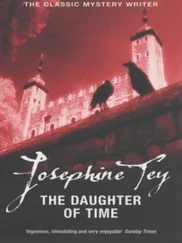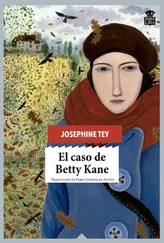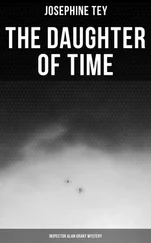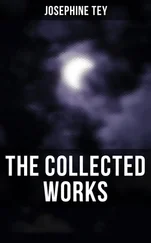The great bird idled up to them along the sand, and for a moment Grant panicked. It was, when all was said, a box. A tight-closed trap of a thing. But the casualness of everything loosened his rigid muscles almost as soon as they had stiffened. In the clinical order of an airport, shepherded and compelled, panic might have conquered. But here, on the open sand, with the pilot draped about the top step as he gossiped with Mr Todd, and the crying of gulls and the smell of the sea, it was a thing one could take or leave. There was no compulsion to be afraid of.
So when the moment came he put his foot over the last step with nothing more than a slight heart-quickening. And before he could analyse his reaction to that closing door a nearer interest caught his mind. In front of him, on the other side of the gangway, was Wee Archie.
Wee Archie looked as if he had just got out of bed, and as if he had done that getting-out in some hurry. His dishevelled splendour looked more than ever as if they were someone’s else’s clothes altogether. He looked like a discarded armature with some studio props flung on top of it. He greeted Grant like an old friend, condescended to him about his ignorance of the Islands, recommended Gaelic to him as a language it would pay him to study, and went back to sleep. Grant sat and looked at him.
The little bastard, he thought. The vain, worthless little bastard.
Archie’s mouth had fallen open, and the strands of black hair no longer covered the thin patch. The knees above the fat brilliant socks were more like anatomical specimens than any mechanism designed for the propulsion of a living being. They weren’t knees; they were ‘the knee joint’. The articulation of the fibula was particularly interesting.
The vain vicious little bastard. He had had a profession that would give him his bread and butter, a profession that would have given him a certain standing, a profession that would have brought him spiritual reward. But that had not satisfied his egotistical soul. He had needed the limelight. And as long as he could strut in the light he did not care who paid for the illumination.
Grant was still considering the fundamental part that vanity played in the make-up of the criminal when a geometrical pattern opened below him like a Japanese flower in water. He took his thoughts from psychological matters in order to consider this Euclidean phenomenon in a world of nature and found that they were circling the mainland airport. He had flown back from Cladda and had hardly been aware of it.
He climbed down on to the tarmac and wondered what would happen if he did a war-dance of joy there and then. He wanted to go whooping and prancing round the aerodrome like a child on his first hobby-horse. Instead he went to the telephone booths and asked Tommy if he could pick him up at the Caledonian in Scoone in about two hours. Tommy could and would.
The food at the airport restaurant tasted like Lucas-Carton, the Tour d’Argent, and La Crémaillière all rolled into one. The man at the next table was complaining bitterly about it. But he of course had not just been reborn after five months of hell and seven days of Katie-Ann.
Tommy’s round, kind face in the lounge of the Caledonian looked rounder and kinder than even Tommy’s face had ever looked before.
There was no wind.
No wind at all.
It was a beautiful world.
What a frightful anticlimax it would be, he thought, if when he got into the car with Tommy the old horror overcame him. Perhaps the thing was just waiting there for him, licking its lips with anticipation.
But there was nothing in the car. Just himself and Tommy and the good relaxed atmosphere of their habitual intercourse. They drove away into the country, an appreciably greener country than it had been ten days ago, and the evening sun came out and sent long golden fingers of light across the calm fields.
‘How did the Moymore ceremony come off?’ he asked. ‘The bouquet presentation.’
‘Oh, heavens: that!’ Tommy said, making motions as of a man mopping his forehead.
‘Didn’t he present it?’
‘If letting her have it is presenting it, I suppose technically he presented it. He handed it over with a speech he had thought up himself.’
‘What kind of speech?’
‘I think he had been rehearsing a sort of get-out for himself ever since we talked him into it by making Zoë Kentallen a rebel of some kind. Which was Laura’s idea, by the way, not mine. Well, when she stooped to take the great bush of carnations from him—she’s very tall—he held them out of her reach for a moment and said firmly: “I’m only giving you this, mind, because you’re a fellow-revolutionary.” She took it without batting an eyelid. She said: “Yes, of course. How very kind of you,” although she hadn’t an idea what he was talking about. She bowled him over, by the way.’
‘How?’
‘In the good old female way. Pat is in the throes of his first infatuation.’
Grant looked forward to seeing this phenomenon.
Clune lay very peaceful in its green hollow, and Grant looked at it as one coming home victorious from battle. Last time he had driven up that sandy road he had been a slave; now he was a free man. He had gone out to look for B Seven and had found himself.
Laura came out to meet him at the doorstep and said: ‘Alan, have you taken to a tipster’s business on the side?’
‘No. Why?’
‘Or one of those Lonely Hearts columns, or something?’
‘No.’
‘Because Mrs Mair says there is a whole sackful of mail waiting for you at the post-office.’
‘Oh. How did Mrs Mair know that the letters were for me?’
‘She said you were the only A. Grant in the district. I take it you haven’t advertised for a wife?’
‘No, just for a bit of information,’ he said, going with her into the sitting-room.
The room in the early dusk was full of firelight and wavering shadows. He thought it was empty until he noticed that someone was sitting in the big wing-chair by the hearth. A woman; so long and slender that she seemed as fluid as the shadows and he had to look a second time to be sure that she was not in truth a shadow.
‘Lady Kentallen,’ said Laura’s voice behind him, in an introducing tone. ‘Zoë has come back to Clune for a few days’ fishing.’
The woman leant forward to shake hands with him and he saw that she was a girl.
‘Mr Grant,’ she said, greeting him. ‘Laura says that you like to be called Mr.’
‘Yes. Yes, I do. “Inspector” has a grim sound in private life.’
‘And a little unreal, too,’ she said in her gentle voice. ‘Like something out of a detective story.’
‘Yes; people expect you to say: “Where were you on the evening of the umpteenth inst?”’ How could this virginal creature be the mother of three sons, one of them nearly old enough to leave school? ‘Have you been having any luck on the river?’
‘I had a nice grilse this morning. You are going to have it for supper.’
She had the kind of beauty that allows a woman to part her hair in the middle and wear it smooth to her head. A dark, small head on a long graceful neck.
He remembered suddenly about the newly decorated bedroom. So the fresh paint had been for Zoë Kentallen, and not for Laura’s latest candidate for his interest. That was an enormous relief. It had been bad enough to have Laura’s selections put under his nose, but to have had the latest one actually under the same roof would have been, to put it mildly, tiresome.
‘The Oban train must have been in time for once,’ Laura said, remarking on his early arrival.
‘Oh, he flew back,’ Tommy said, throwing another log on the fire. He said it casually, unaware that the fact had any importance.
Читать дальше












